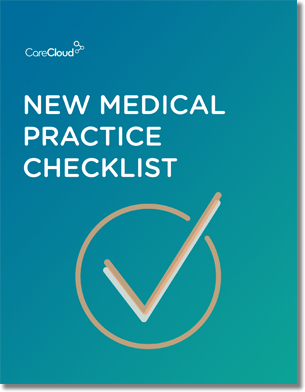Nurses play a crucial role in the medical practice. They have their hands in almost every aspect of care and can provide invaluable insight into the inner workings of the office. That’s why vendors consider them to be an integral part of the EHR adoption process.
Drawing upon their unique perspective early in the process can influence their attitude towards the EHR and affect how easily they embrace it.
The Relationship Between Nurses and EHRs
Physicians are not the exclusive users of EHRs. According to MGMA Consultant Rosemarie Nelson’s figures, nurses account for almost 75% of chart use while physicians make up the other 25%.
Including nursing staff in selection, implementation, and optimization decisions will help avoid workflow issues and encourage staff to embrace the new technology as well.
“A successful EHR implementation focuses on how the nurses can assist the physician in the integration of the EHR into clinical workflow,” added Nelson. “Too often, a committee is created in medical practice, and there’s no nursing representative. Bring in the nurses.”
In May of 2008, the AC Group conducted a survey of 137 practices to determine the EHR implementation success rate when a nurse is involved. The survey found an 83% higher success rate of EHR adoption when the group assigned a nurse or medical assistant to track physician clinical protocols.
Now, let’s take a look at the points in the EHR implementation process where nurses can provide the most insight.
Security
Most nurses are very familiar with HIPAA standards. Nurses can provide input to the development of EHR security measures that keep personal health information protected at all times.
Location
Seeing as nurses will using the EHR most of the time, it’s best to ask them where the system should be installed. Cloud-based EHRs provide an inexpensive way to access patient charts from any computer or tablet.
Notes and Templates
Nurses should be utilized in the review of visit note templates and the development of other note templates and forms. The nurse and physician should decide if there are any specific notes that only a nurse can approve.
Training
Nurses should be deeply involved with the core team during staff training. Nurses are “super users” and can provide a great deal of help to doctors during the early stages of adoption.
Simulation
Prior to going live, scheduling practice run-throughs of the new EHR will offer a great opportunity to adjust workflows and tweak the system.
Encourage nursing staff to provide insight into workflow processes such as how exam room locations will be entered, updating the past medical and social history, phone call logging, and charting procedures of all nursing functions like injections, blood pressure checks, and dressing changes.
Prescriptions/Medication
Nurses should be involved with the workflow setup for ordering and refilling medications through the EHR.
Once the implementation process is underway, nurses serve as a valuable resource to physicians, assistants, and other staff through the adjustment period. But the process shouldn’t end there. When the system is in place, nurses can optimize EHR use by providing experienced feedback.
Have nurses assisted your EHR implementation? Let us know how in the comments section below.

Do you know what you need when setting up a new medical practice?

